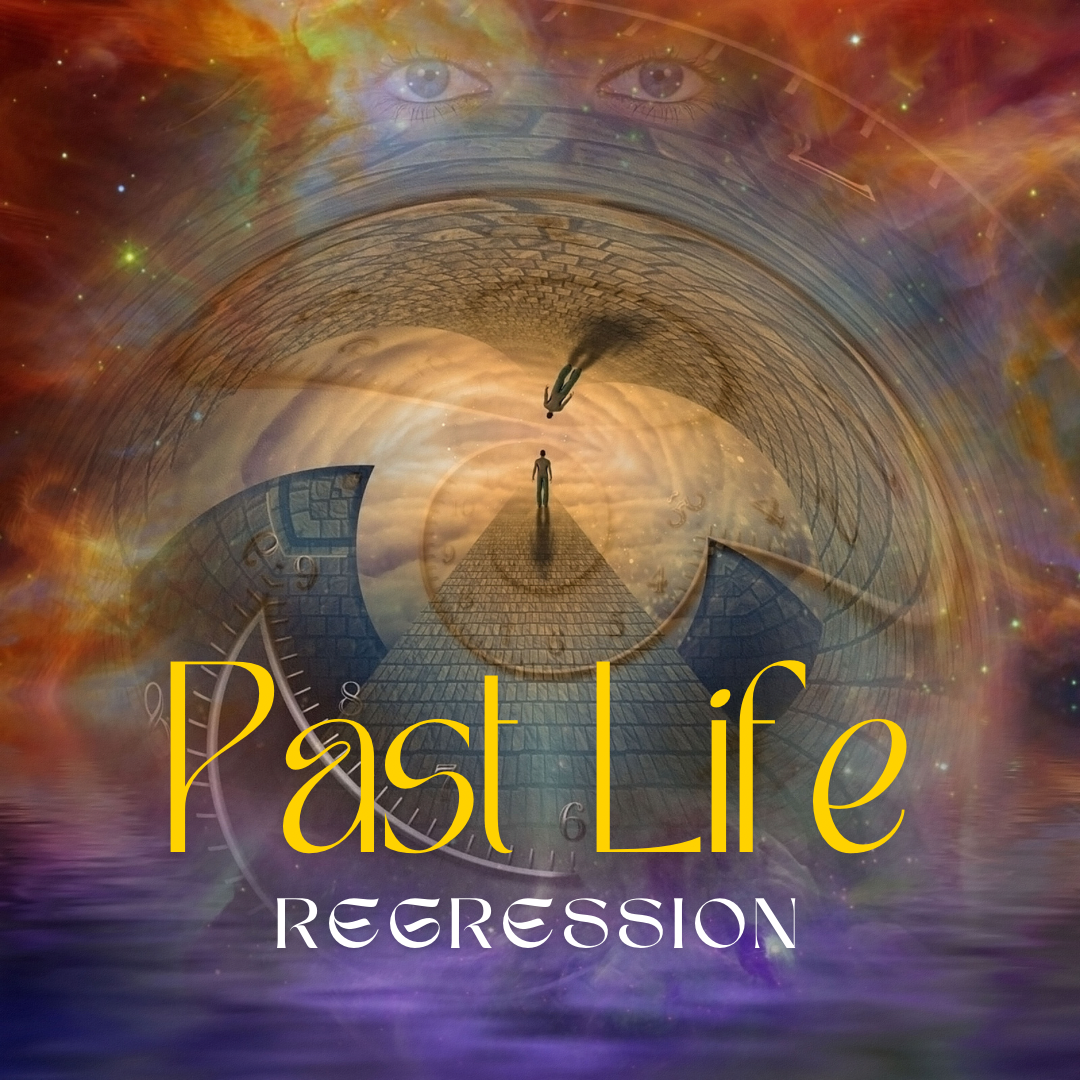
Past Life Regression Therapy: Exploring the Mind’s Hidden Stories
Share
A Personal Perspective on an Enlightening Journey into the Subconscious Mind
When people ask me about past life regression, I often describe it as an enlightening experience designed to give clarity on the patterns playing out in your current life. It’s a process I encourage my clients to approach with an open mind, free from expectation. I see it not just as a technique, but as an opportunity to explore the deeper threads of our existence in a safe and positive space.

Personally, my journey with past life regression began from a place of intrigue - mixed with a little trepidation. I knew that if I were to offer this to others, I needed to trust in the process myself. I sought out a trainer I deeply respected, someone who aligned with my values around safety, ethics and positivity. Every time I engage in a regression myself, I find it fun, enlightening and incredibly therapeutic. For me, it’s become a way of gaining clarity about life’s bigger picture.
At its heart, past life regression is a form of exploration which resonates with my science mind that is eager to learn and understand. To me, science is about exploring the unknown, being willing to ask questions and keeping an open mind about what we discover. While some may approach past life regression with scepticism, I see it as one more tool that speaks to the incredible capacity of the mind to heal, grow and thrive.

Ensuring Safety and Comfort
Safety is paramount in past life regression therapy. As a practitioner, maintaining safety is fundamental to my approach. I specifically chose training that emphasises a trauma-informed, positive framework in both regression and hypnotherapy. My role is to guide clients gently, keeping them anchored in a place of safety before they explore past experiences. For me, this work isn’t about reliving trauma or dredging up pain; it’s about gaining insight, clarity and often a sense of freedom from repeating the same cycles. Before any session, we engage in a thorough pre-session interview to establish expectations and address any questions. This preparation ensures that you feel secure and supported throughout the process.

The Allure - What Brings People to Past Life Regression?
In my practice, clients seek past life regression for a variety of reasons. Some hope to gain clarity about persistent patterns, relationships or fears they can’t explain; others feel a pull - a belief that experiences beyond this life influence their current existence. Others are simply curious.
Regardless of the motivation, I’ve found that those who approach the experience with openness are the ones who gain the most insight. Interestingly, a 2019 review of hypnotic regression therapies noted that openness to experience is a predictor of positive outcomes, as individuals who trust the process are more likely to access meaningful material.

The Transformative Power of Regression
The outcomes can be profound, including a sense of enlightenment and freedom from repetitive life cycles. Even if one questions the literal reality of past lives, the therapeutic value remains significant. I don’t claim to know for certain whether what we access in a regression is truly from another lifetime. In fact, research suggests that past life regression stimulates the memory centres of the brain, rather than the imagination. It seems we are tapping into deeply stored material, regardless of its origin. I find that fascinating - as both a scientist and someone who believes in the expansive potential of the mind. A study by Granhag et al. (2003) found that individuals under hypnosis can produce detailed narratives that feel autobiographical, even when those events didn’t occur in their current life. Similarly, research into hypnotic suggestion and memory (Reveri, Stanford University) shows that hypnosis can tap into memory systems in ways that feel profoundly real to the individual.

What Happens in a Session?
Clients often ask what they need to do to prepare. I always advise them to come open and trusting. That openness is key, because ultimately, you get what you’re open to receiving. My job isn’t to impose an outcome, but to facilitate an experience that allows the subconscious to unfold what needs to be seen.
During the session, I keep you anchored in a place of safety before we explore any past experiences. Everything encountered in a regression holds potential significance. My role is to help you explore and interpret those experiences in a way that supports your growth. Some clients experience powerful visuals or emotional releases; others have subtle insights that ripple out over time.
Sometimes clients leave with a sense of enlightenment; other times, it’s a simple but profound clarity that shifts their understanding of a life pattern. Research shows that the brain’s autobiographical memory system can construct rich narrative experiences under hypnosis, reinforcing the subjective depth of these sessions (Lynn et al., 2015).

Embracing the Unknown
If you’re curious about your own deeper stories, I invite you to come eager to explore - knowing that you’ll be held safely as we journey into the layers beneath your conscious awareness. Everything encountered during a regression is meaningful and significant. It's my role to guide you through these experiences, helping you explore and interpret them in a way that supports understanding and growth.
Further Reading
For those interested in the scientific perspectives, explore research from Reveri - Dr. David Spiegel, founder of Reveri and Medical Director of the Center for Integrative Medicine at Stanford University School of Medicine is a leading authority on clinical hypnotherapy, noting that hypnosis can be a powerful tool for accessing and reframing subconscious experiences.
Studies into hypnotic suggestion and memory (Lynn et al., 2015; Granhag et al., 2003) offer further insights into the fascinating relationship between hypnosis, memory, and narrative construction.
Please consider the following resources:


